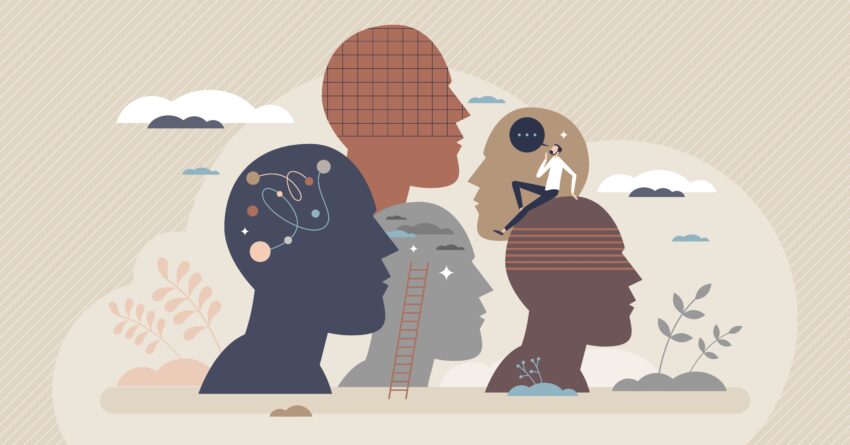The Power of Connection: Building Strong Therapeutic Relationships
February 29, 2024

In the realm of mental health and personal growth, the significance of strong therapeutic relationships cannot be overstated. Beyond the traditional roles of therapists as experts in psychological techniques, the power of connection forms the bedrock of transformative healing. This blog delves into the profound impact that robust therapeutic relationships have on a client’s overall well-being, highlighting the collaborative process that unfolds during the journey of personal growth.
The Essence of Therapeutic Connection
At the heart of any therapeutic journey lies the essential ingredient of connection. This connection extends beyond mere conversation; it is a symbiotic relationship between the therapist and the client. It involves trust, empathy, and understanding, creating a safe space for clients to explore their thoughts, feelings, and experiences without judgment. When a strong connection is established, it opens doors for vulnerability, paving the way for authentic self-expression and exploration.
Positive Impact on Well-being
The impact of a strong therapeutic relationship on a client’s overall well-being is profound. Research consistently demonstrates that individuals who experience a deep connection with their therapists report higher levels of satisfaction and positive outcomes in their mental health journeys. This connection fosters a sense of security and acceptance, critical elements in dismantling the barriers to emotional growth. Clients are more likely to engage actively in therapy and embrace the process of self-discovery when they feel supported and understood.
Navigating Personal Growth Together
The collaborative aspect of strong therapeutic relationships transforms the therapeutic journey into a shared venture. Therapists become guides, walking alongside their clients through the maze of personal growth. Together, they navigate the challenges, celebrate victories, and uncover the layers of the client’s unique narrative. This collaborative approach empowers clients to take an active role in their healing process, promoting a sense of agency and control over their lives.
Trust as the Cornerstone
Trust is the cornerstone of any meaningful relationship, and the therapeutic alliance is no exception. Building trust is a delicate process that requires time, consistency, and genuine care. Therapists must demonstrate reliability, transparency, and confidentiality, fostering an environment where clients feel safe to disclose their innermost thoughts and emotions. As trust deepens, the therapeutic space becomes a sanctuary where clients can explore their vulnerabilities without fear of judgment.
Empathy and Understanding
Empathy and understanding are the threads that weave the fabric of a strong therapeutic relationship. Therapists who possess the ability to empathize with their clients create a bridge that spans the gap between professional and personal connection. Understanding goes beyond acknowledging the facts of a client’s experiences; it involves stepping into their emotional shoes and validating their feelings. When clients feel seen and heard on a profound level, the therapeutic relationship becomes a powerful catalyst for transformation.
The Ripple Effect of Connection
The impact of strong therapeutic relationships extends far beyond the therapy room. As clients experience the transformative power of connection, they often find themselves cultivating healthier relationships in other aspects of their lives. The ripple effect of this newfound ability to connect authentically can improve communication, foster resilience, and enhance overall well-being. Therapeutic growth becomes a catalyst for positive change that extends beyond the individual and into their broader social network.
Challenges in Building Connection
While the benefits of strong therapeutic relationships are evident, the journey to building such connections is not without its challenges. Therapists must navigate cultural, interpersonal, and systemic factors that can impede the development of a robust alliance. Awareness, ongoing training, and a commitment to cultural competence are essential in overcoming these challenges and ensuring that the therapeutic relationship remains a source of strength and support.
Summary
The power of connection in therapeutic relationships is transformative. Beyond the techniques and theories, it is the quality of the relationship between therapist and client that propels the journey of personal growth. As therapists cultivate trust, empathy, and understanding, clients find themselves not only healing but actively participating in their own evolution. The ripple effect of these strong connections extends into the fabric of clients’ lives, fostering resilience, positive change, and a renewed sense of well-being. In the realm of mental health, the power of connection remains an indispensable force, guiding individuals towards a path of self-discovery, healing, and growth.
Need Psychotherapy in New York, NY?
Here at Steady NYC, we recognize the profound impact that a strong therapeutic relationship can have on the lives of our clients. If you are ready to embark on a journey of self-discovery, personal growth, and positive change, we invite you to reach out to us. Our dedicated team is here to provide the support, understanding, and collaborative partnership you need to navigate the intricacies of your unique journey. Together, let’s harness the power of connection to build a foundation for lasting well-being and transformative growth. Your journey starts here – contact us today.


